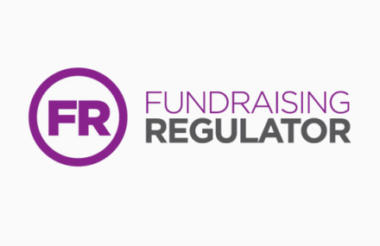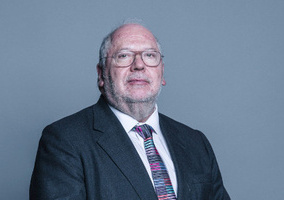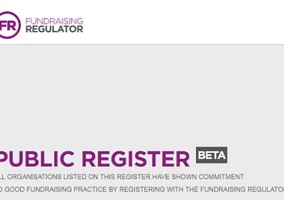The Fundraising Regulator was set up to promote and support a culture of responsible fundraising. This work is essential to making our sector a better place. But it is best received when based on a conversation on equal footing with the sector.
Trustees must determine how to spend charitable funds…
In charity law it is for the trustees of any charity to determine how best to use donors’ funds in line with its powers and objects. It is for the trustees to decide if they believe that any voluntary levy, to the Fundraising Regulator or any other body, is in the best interests of their beneficiaries. It is not for the Fundraising Regulator or any other non-statutory body, to make that judgement for them.
This is why we believe that Lord Harris of Haringey, the recently appointed chair of the Fundraising Regulator, was wrong to accuse some charity chief executives and trustees of being ‘arrogant’ because they chose to spend their charitable funds on other things rather than the Regulator’s supposedly ‘voluntary’ levy.
Following in the footsteps of his predecessor, Lord Grade, he gave this view to a major national newspaper – in this case the Times. Readers are highly unlikely to be aware of the nuances of the discussion around the levy and therefore the potential takeaway message to the public was that ‘arrogant’ charities don’t believe in responsible fundraising.
Every charity is different. The motivations to pay or not are manifold and might vary over time. It’s just wrong to tar all non-payers as ‘arrogant’.
Naming and shaming online of those who have not paid is wrong
Meanwhile charities who have not paid the levy are highlighted in red in the Fundraising Regulator’s online registry. The lay user just gets the simple message that something must be wrong with the charity – why would they be marked in red otherwise? Or wonder if they have any hidden and dishonest motives for not paying the levy? This signals to external people: something must have been wrong in the first place.
So what about naming charities that are being investigated?
The approach to the levy is reflected in other recent moves too. In November last year the sector was told that the Fundraising Regulator’s Board had decided to name all organisations the regulator investigates, whether the complaint is upheld or not. Organisations will be named in all investigations into complaints received on or after 1 March 2019.
The regulator claims that this is to increase transparency about how it works and to help the public make more informed choices. They also say that this is intended to show that not all complaints are about poor practice by charities. But charities that are named as the subject of a complaint, regardless of whether the complaint is upheld or not, will inevitably seep into the public consciousness as having done something wrong.
A tiny minority of complaints lead to an investigation, and not all of those complaints are being upheld. But a busy person skimming a headline is unlikely to take the time to check up. So we’d argue that there is a risk of misleading the public whilst trying to illuminate.
There are also the real risks of inaccurate press coverage on the ability of charities to raise the funds they need to serve their beneficiaries if information is put out without sufficient context.
Time to reopen a dialogue with the sector
Promoting responsible fundraising and sharing best practice are of course important for the public. But unfairly naming and shaming charities is not the way to do it. In our view these tactics throw a shadow over other good progress the Fundraising Regulator has made recently. It leaves the sector with a bitter after taste at a time where a more constructive dialogue is needed. There is room for improvement.
The year has just begun. Let’s restart the conversation in a way that feels more like taking note of the different individual circumstances that charities find themselves in at the moment.
Daniel Ferrell-Schweppenstedde is policy and public affairs manager at DSC
Related articles











